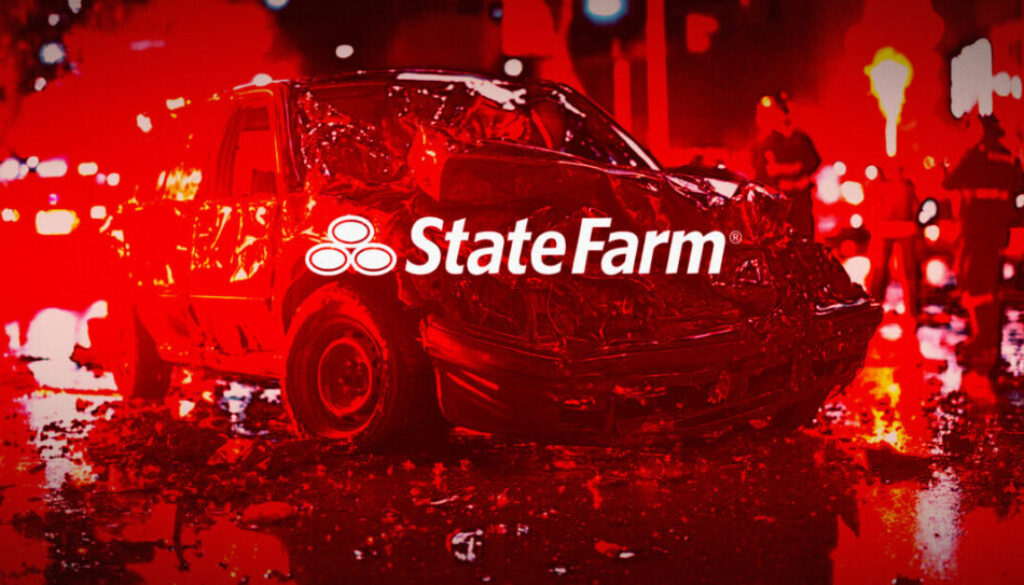Appeals court partially overturns judgment in State Farm class action lawsuit
The Court of Appeals for the Ninth Circuit has allowed a class action lawsuit against State Farm to continue, after partially reversing the decision of a Washington federal court recently.
Plaintiffs allege in the lawsuit that State Farm is using a software program to artificially reduce totaled vehicle values and underpay insurance claims. The insurer is battling similar lawsuits around the country.
They argue that these price adjustments are not permitted under Washington law, and that doing so counts as a breach of contract and unfair trade practice under Washington’s Consumer Protection Act.
A district court earlier decertified both the negotiation and condition classes based on the plaintiffs’ “putative failure to demonstrate injury.” However, the appeals court has agreed with decertification of one class but not the other, breathing new life into the case.
“The panel reversed the district court’s summary judgment in favor of insurers as to the named plaintiffs’ individual claims, and remanded for the district court to evaluate anew whether the named plaintiffs have adduced sufficient evidence of injury consistent with this opinion,” the Ninth Circuit opinion states.
Claim adjustments called into question
The Faysal Jama, et al v. State Farm Mutual Automobile Insurance Company, et al case centers around State Farm’s use of a third-party vendor called Autodex to generate “Autosource” reports after a client’s vehicle is totaled.
The report searches databases of advertised prices of comparable vehicles and makes “adjustments” such as a “negotiation” and a “condition” discount. Plaintiffs in the case are challenging these two adjustments in particular.
The negotiation discount accounts for the lower price a buyer may negotiate for a car. The condition discount accounts for a car’s actual condition being worse than a replacement vehicle, and therefore being worth less.
The district court ruled that while “appropriate condition adjustments” are allowed under Washington law, negotiation adjustments are not.
Their ruling drew heavily on a 2022 Lara v. First National Insurance case, a somewhat similar putative class action in which the Ninth Circuit agreed with a district court’s decision not to certify a proposed damage class but rather to determine damages individually.
The district court’s summary judgment “reasoned that, under Lara, the mere fact of an illegal adjustment under Washington’s insurance regulations did not suffice to establish injury.”
However, the appeals court disagreed with this, determining that the lower court misread Lara in its decision.
“Because we conclude that the district court misread Lara as to the negotiation discount, it follows that the district court’s entry of summary judgment against the named plaintiffs based on their claims for the negotiation discount was in error. We further hold that — even as to the challenged condition adjustment — the district court also erred in holding that plaintiffs could not rely on the Autosource reports, and the amount of a challenged adjustment, as relevant evidence of value and injury,” the Ninth Circuit concludes.
As that court does not determine whether plaintiffs have presented sufficient evidence of injury to survive summary judgment, that issue has been remanded to the district court.
Classwide assessment of damages
The Ninth Circuit also found the lower court abused its discretion by decertifying the negotiation class, effectively allowing damages to be assessed collectively for an entire class rather than individually.
However, they upheld the district court’s decision to decertify the condition class “since no one disputes that State Farm could have applied a lawful condition adjustment to each member of that class.”
“Because we conclude that the class based on the negotiation discount can prove injury on a class-wide basis, we reverse the district court’s decision decertifying the negotiation class. However, because the condition class here is in all relevant aspects identical to the one in Lara, we affirm the district court’s decision to decertify the condition class,” the panel writes.
State Farm lawsuit dissent
Circuit Judge Johnnie B. Rawlinson was the sole dissenter. She disagreed with the majority opinion in the State Farm lawsuit, arguing that it conflicts with Lara and creates an “unnecessary circuit split,” which the court strives to avoid.
She emphasized that, in Lara, the court found violation of the regulation was not a breach of contract; plaintiffs still had to show harm; plaintiffs could not use reports to show harm; and harm was determined on an individual level rather than class-wide.
“My colleagues in the majority followed the Lara decision and do not challenge the denial of certification for the condition adjustment claims. However, their attempt to distinguish Lara as applied to the negotiation adjustment claims, in my view, is singularly unpersuasive,” Rawlinson states in her opinion.
The opinion was filed by circuit judges Rawlinson, Jennifer Sung and Jed S. Rakoff.
The Ninth Circuit ruled that each party in the Faysal Jama, et al v. State Farm Mutual Automobile Insurance Company, et al appeal case must bear their own costs.
© Entire contents copyright 2024 by InsuranceNewsNet.com Inc. All rights reserved. No part of this article may be reprinted without the expressed written consent from InsuranceNewsNet.com.
The post Appeals court partially overturns judgment in State Farm class action lawsuit appeared first on Insurance News | InsuranceNewsNet.




